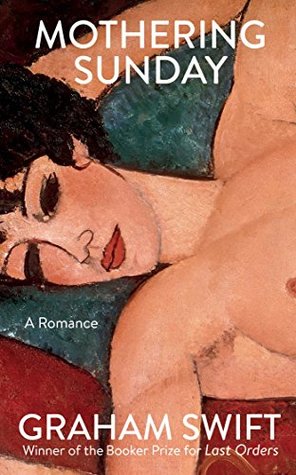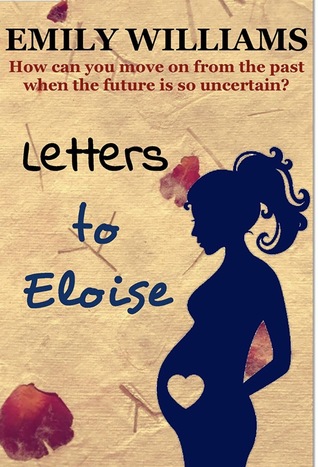I'm delighted to be returning to my From The Other Side series this week, after a brief interlude during which I interviewed two of my favourite fellow authors, Isabel Costello and Rebecca Mascull. I then invited the hard working Bleach House Library blogger Margaret Bonass Madden to appear next on my blog, and she agreed! Margaret is a student, mother of five (like me!) and a foster carer. She also manages to find the time to read and review lots of books. Awesome. Here's what she had to say...
All
book bloggers are surely book lovers. How and when did your love of reading
begin?
I have always been an avid reader. My father used to take
me to the library in our coastal village. Then children’s section was upstairs
and I still remember the wide, wooden staircase and the big heavy doors. There
was a large stuffed ladybird on top of the bookshelves and I wanted her SO
badly. There were Beatrix Potter prints dotted around the room and the silence
was deafening. The counter was really high and I loved the thud of the rubber
date stamp and the little cardboard tickets that were inside each book. I
thought I would never be old enough for the ‘grown-up’ library, which was
downstairs. When the day finally arrived, I was so proud to have a blue library
card instead of the child’s green one.
Margaret
When
did you start your blog?
I wrote my first blog post back in July 2013. I cannot
believe how time has flown!
Is
there a particular genre you enjoy reading and reviewing?
Obviously, I have a love of Irish Fiction. For such a
small island, we have a reputation of producing some of the worlds most
talented writers. In general, I love everything except sci-fi and fantasy. I
appear to be missing the gene.
Do
you have a “day job” (work, children, and/or caring responsibilities) - and if
so, how do you fit in all your reading, reviewing and blogging?
I am a full-time BA student and a foster carer. I am
studying English and History, after returning to education after more than
twenty years. I also review books for both The Irish Times and The Sunday
Independent. It can be hard to fit everything in but, when it comes to books, I
find the time.
If I
don’t like a book, I usually don’t review it on Goodreads, Amazon, Netgalley or
on my blog. For me, that’s the kindest thing to do. As a writer, I know how
disheartening negative reviews can be. I also appreciate not every reader
enjoys every book. How do you stand on this issue?
I am different to you. I review for the readers, not the
writers, so I review everything on Goodreads, Amazon etc. I try to find
something positive to say, but will be honest. I won’t always put every review
on my blog, as they may have been used in a newspaper. It is rare that I read
books that I don’t like, these days. I think publishers now know what kind of
books I enjoy and the ones I have bought myself were chosen for obvious reasons.
I did read a title recently that was so badly written that I ended up chucking it
at the wall. I chose not to review on my blog, as I had not finished it, but I
did leave feedback on Goodreads and Amazon. I would NEVER tag an author in a
negative review. That is just cruel and unnecessary.
Have
you ever had a negative response from an author after reviewing their work, and
if so, how did you handle it? (No names needed!)
Yes. The author responded to a review link on Facebook. I
did not engage. It is not a wise move. My advice is to NOT respond.
How
do you feel about indie authors? Do you consider self-published books?
I do review self-published books, but they must be
well-packaged and be edited by a professional. I have read some that have been
published without either of these being done and it is very obvious. Asking a
few friends and family to read your novel before you press publish is not
enough. [I quite agree! - LW]
On
the other hand, how do you feel about those over-hyped books from the Big 5
publishers?!
I am usually sent very early copies of books from the Big
5 and can see how a big social media campaign can make a huge difference. I can
receive up to thirty books per week, so getting a particular title noticed,
very early on, needs some clever marketing. However, not all of these books
deserve the hype. Again, this is where honesty comes into play. If you don’t
post negative reviews, how will people know not to buy certain books?
There
has recently been some negative stuff on social media about book bloggers. I
know how this feels, as I am self-publishing my second novel, and lord knows
how indie authors get looked down upon in some quarters! So - how do you
respond to that negativity?
I don’t engage with individual angry/ranty/trolling
social media posts. It is pointless. I did write a piece for the IrishTimes about this very subject, as there was an implication
that bloggers are not real readers. This could not be farther from the truth.
We are doing this for our love of books. We are not paid. We may be the most
qualified to have opinions on books.
Have
you made “real life” friends as a result of your book blog?
Have I ever! Since I began bleachhouselibrary.ie, I have
met the most wonderful, like-minded people. From authors, bloggers, publishers,
booksellers, librarians….
There is always someone I can call on if I am travelling
to an event, home or away, that will be more than delighted to meet up. I get
to launches/festivals/readings in both the UK and Ireland so I have been
fortunate to meet many, many wonderful people. I wish I could attend more
events in the UK, but it's financially impossible. Flights are not expensive, but
hotels are!
Tell
us about the art of writing a review. How do you avoid spoilers but manage to
convey the sense or feel of a book? I find it difficult, so any tips will be
gratefully received! I’ve seen some fantastic reviews, which I suspect were
pretty tricky to write…
It can be SO hard. The short newspaper reviews are the
hardest! Trying to get the story across enough to pique interest can be
harrowing work. Seriously. Spoilers are an absolute nightmare and are a
pet-hate of mine. I read a review last year, which gave the whole story away. I
have not bothered to read that book since. What is the point? The only tip I
have is to concentrate on the bigger picture; the characters; the location; the
feel of the book. Some reviews can take me a long, long time to get right.
Big
question: Have you ever been tempted to write, or have you written, a novel (or
any kind of book) yourself?
I love short stories. Both reading them, and writing
them. I love how you can get straight into the characters heads and compress an
idea into 2000 or 3000 words, yet still have an impact. Often the endings are
ambiguous, so this is a genre that not many choose to read. Maybe readers fear
that short-stories are ‘arsey’ (my favourite word) but this is not the case. If
done correctly, they can be both enjoyable and extremely memorable. I have no
interest in writing a novel in the foreseeable future. I completely adore
writing reviews and still get massively excited to see them online or in print.
Quick
fire: E-reader or print?
Print.
Finally,
what are you reading at the moment?
Letters from the Suitcase by Rosheen and Cal Finnegan. It
is non-fiction, which I aim to read as much as possible.
Big thanks to Margaret! Fascinating stuff, and a refreshingly uncompromising attitude to book reviews. As Margaret says, they are for readers, not the authors or publishers. I also like the sage advice for us self-published authors about the importance of decent editing and covers.


















![A Time of Gifts: On Foot to Constantinople: from the Hook of Holland to the Middle Danube by [Fermor, Patrick Leigh]](https://images-eu.ssl-images-amazon.com/images/I/51ypyUfWMDL.jpg)

![Letters From The Suitcase by [Finnigan, Cal, Finnigan, Rosheen]](https://images-eu.ssl-images-amazon.com/images/I/51WQ-obDXML.jpg)





